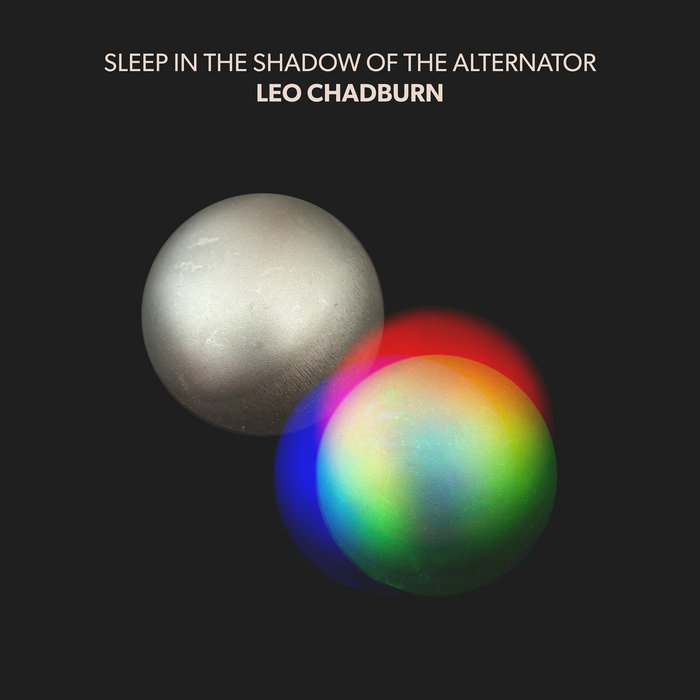Leo Chadburn’s Sleep in the Shadow of the Alternator is a dream: a deep immersion in another world that is like and unlike our own, described through abandoned landscape, wrecked machines and lost purpose. The dream is here and now, a post-industrial Britain inspired by Chadburn’s East Midlands home town, marked by the closed power stations and coal mines, retreating back to the land and back to the future.
Chadburn is an acclaimed composer who has released several solo albums, including as Simon Bookish. Sleep… is powered by his narration, words murmured into a microphone like the latest of late night radio: the spirit of Chris Morris’ Blue Jam and Delia Derbyshire’s Inventions for Radio. Around his soft, insistent voice, layers of sound rise and fall. On ‘The Body Becomes a Viewfinder’ an electronic sea seems to take over as waves close in. ‘Magic Flora of the East Midlands’ uses Gregorian chant, while ‘Move Like a Freight Train’ uses percussion to tap out a metallic, trundling, train track beat.
The album is almost entirely performed by Chadburn himself, playing everything from prepared piano to thundersheet, tam tam to short wave radio. His musicianship is subtle, insistent and delightful. Sing… is a fully-realised sound world which sounds both natural and inevitable. Chadburn’s writing, which is of a very high quality, is crucial to the album’s success. His narrative is full of glorious, casual images that make a powerful poetry. Sleep… draws on a tradition of poets, somewhat outside the mainstream, writing the landscapes that fill their minds. It is reminiscent of Ivor Cutler, Alan Moore and Tim Perkins, and, more recently, Chanctonbury Rings by Justin Hopper, Sharron Kraus and Belbury Poly.
The album opens with the dilapidated edgelands, overgrown landfill and dismantled pitheads of Leicestershire, a landscape that is hallucinatory but real. ‘Move Like a Freight Train’ lists forgotten machines at a disused coal mine, as urgency and tension build. The narration takes on the rhythms of a rolling train, with strong echoes of W.H. Auden and Benjamin Britten’s soundtrack to the 1938 documentary Night Mail. It is a thrilling experience, and an impressive feat of production. It is also a tribute to the dismantled skill and lives of those who worked in heavy industry, and the worlds they created.
Sleep… progresses into future versions of the landscape, pulled into new shapes by deeper powers of geology and nature that lie well beyond human compass. The album ends with an apparently post-apocalyptic vision of place. On ‘It is a Beautiful Day (1000 Years Later)’ Chadburn speaks over the crunch of footsteps, exploring a lush natural world with “ancient eyes observing”. The stranger and more psychedelic the setting, the calmer Chadburn’s words become. By this point, we are fully committed to his world and re-emerging is a shock. Sleep in the Shadow of the Alternator is a perfectly realised work, and visionary triumph.


